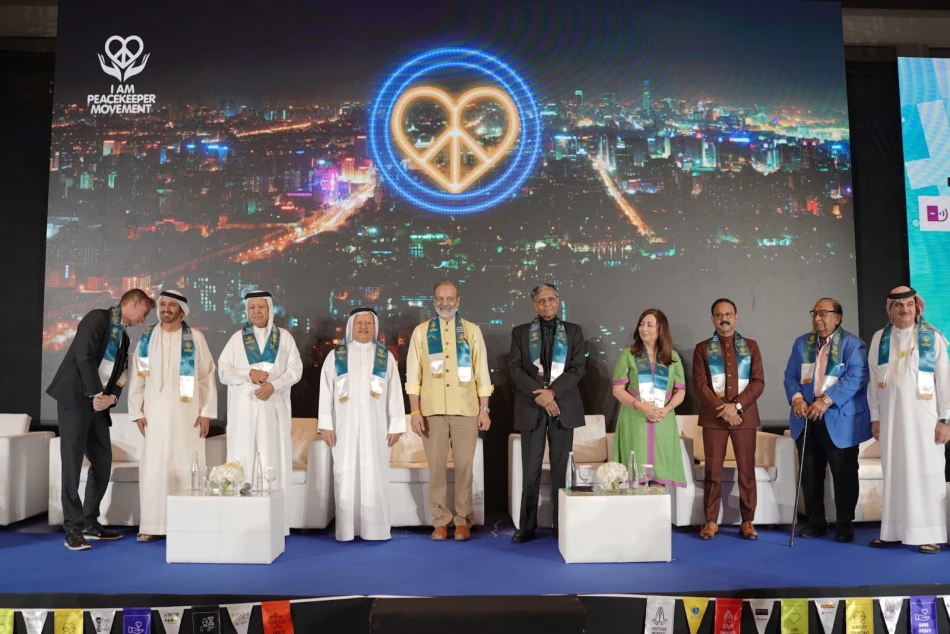
Dubai Hosts Global Peace Initiative: 'I Am a Peacemaker' Movement Launched with World Leaders
Dubai Positions Itself as Global Peace Hub with Ambitious 2025 Movement Launch
Dubai has reinforced its status as a premier destination for international diplomacy and humanitarian dialogue with the launch of the "I Am a Peacemaker 2025" movement. The initiative, unveiled at a high-profile ceremony attended by Nobel Peace Prize laureates and global decision-makers, signals the UAE's strategic push to establish itself as the world's leading platform for peace-building initiatives.
A Star-Studded Launch with Nobel Credibility
The launch event brought together an impressive roster of global peace advocates, including movement founder Dr. Huzaifa Khorakiwala, CEO of Wockhardt Group, alongside two Nobel Peace Prize winners: Professor Mohan Muna Singh (2007) and Owayd Bushmawi (2015). The ceremony also featured Dr. Khalid Ghanem Al Ghaith, Secretary-General of the Higher Committee of Human Fraternity in Abu Dhabi, lending institutional weight to the initiative.
This caliber of international participation reflects Dubai's growing influence in global peace diplomacy—a strategic positioning that has accelerated since the Abraham Accords in 2020 and the UAE's broader foreign policy pivot toward regional stability.
Twelve Pillars of Digital-Age Peacemaking
The movement announced twelve core initiatives that blend traditional diplomacy with modern digital outreach strategies. The most ambitious goal involves mobilizing two million supporters across digital platforms—a scale that would rival major political campaigns and social movements.
The Billionaires' Summit Strategy
Perhaps the most intriguing component is the planned "Billionaires for Peace" summit scheduled for February 2026. This approach mirrors successful models like the Giving Pledge, where ultra-high-net-worth individuals commit resources to global challenges. By targeting billionaires specifically, the movement acknowledges that modern peace-building requires substantial private capital alongside governmental efforts.
This strategy also positions Dubai as a competitor to traditional philanthropy hubs like New York and London, leveraging the city's tax advantages and neutral geopolitical stance to attract wealthy donors focused on conflict resolution.
Building on Dubai's Diplomatic Infrastructure
The initiative builds directly on Dubai's April 2024 Global Peace Summit, which brought together twelve Nobel Prize winners in an unprecedented gathering. This continuity suggests a long-term institutional commitment rather than a one-off event, indicating Dubai's serious intention to establish permanent peace-focused infrastructure.
Dr. Khorakiwala emphasized that peace must transition "from mere rhetoric to daily practice in our homes, institutions, and governments"—a pragmatic approach that distinguishes this movement from more abstract peace initiatives.
Economic Peace-Building Takes Center Stage
Professor Muna Singh's emphasis on "economic justice" as a cornerstone of peace-building reflects contemporary understanding that sustainable peace requires addressing inequality and environmental degradation, not just stopping active conflicts. This holistic approach aligns with the UAE's own development model, which has used economic prosperity to maintain social stability across diverse populations.
Regional Context and Global Implications
The timing of this launch is particularly significant given ongoing regional tensions and global conflicts. The UAE has successfully positioned itself as a neutral mediator in various disputes, from facilitating prisoner exchanges to hosting diplomatic talks. This peace movement represents an evolution of that strategy—moving from reactive mediation to proactive peace-building infrastructure.
For international observers, Dubai's peace diplomacy represents a new model where city-states and smaller nations can wield outsized influence through strategic positioning and resource deployment. The success of this movement could inspire similar initiatives in other neutral hubs like Singapore or Switzerland.
The movement's digital-first approach and billionaire engagement strategy suggest that 21st-century peace-building will increasingly rely on private sector innovation and social media mobilization rather than traditional state-to-state diplomacy alone.
Most Viewed News

 Sara Khaled
Sara Khaled






